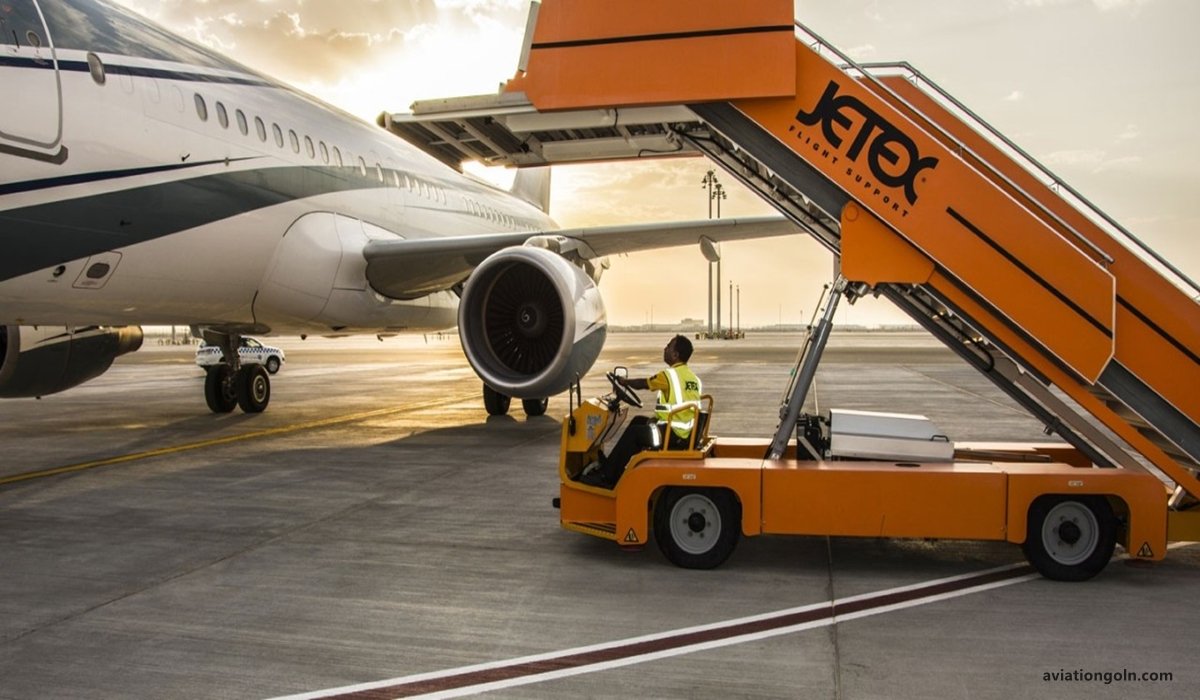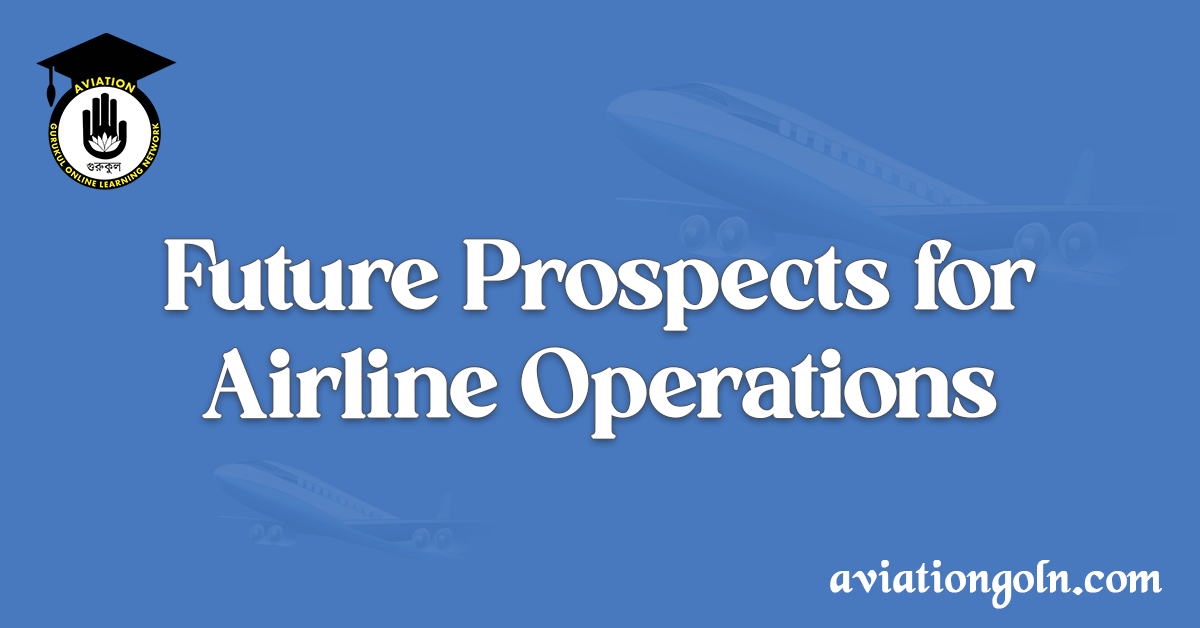Future Prospects for Airline Operations: The airline industry has always been a dynamic one, with its growth, challenges, and innovations largely mirroring the broader global socio-economic changes. As we move further into the 21st century, the industry is poised to undergo transformative changes once more, driven by technological advancements, environmental concerns, and shifts in consumer behavior. Here, we explore some of the most significant prospects for the future of airline operations.
Future Prospects for Airline Operations

1. Sustainability and the Green Revolution
Biofuels and Synthetic Fuels
With the global emphasis on reducing carbon footprints, many airlines are turning towards alternative fuels. Biofuels derived from algae or crop waste and synthetic fuels produced from renewable electricity can significantly reduce CO2 emissions. Although they are currently more expensive than traditional jet fuel, economies of scale and technological breakthroughs are expected to make them more commercially viable.
Electrification
Electrically powered aircraft are being developed for short-haul routes. These planes produce zero emissions, reduce noise pollution, and could result in decreased operational costs. Given the limited range and smaller carrying capacities, electric planes are more suitable for regional and domestic flights at present. However, with rapid advances in battery technology, it’s plausible we’ll see electric aircraft for longer routes in the distant future.
Operational Efficiency
Airlines are investing in fuel-efficient aircraft, optimizing routes, and implementing Single European Skies and NextGen in the U.S. to streamline air traffic. These changes can reduce fuel consumption and time in the air, resulting in considerable reductions in emissions.

2. Autonomous Aircraft
While pilotless commercial flights might seem a far-off idea, research in this area is intensifying. Many of the aircraft systems are already automated, and with advancements in AI and machine learning, autonomous flights may become a reality. It could lead to cost savings for airlines and potentially safer skies, as human error is reduced.
However, embracing this fully will require regulatory shifts, infrastructural developments, and public acceptance.

3. Personalized Passenger Experience
AI & Data Analytics
The use of AI and data analytics allows airlines to offer a more personalized experience for passengers. From customized entertainment playlists to meal choices based on past preferences, airlines can ensure each journey is tailored to the individual.
Augmented Reality (AR) & Virtual Reality (VR)
In-flight entertainment is evolving with AR and VR technology. Passengers could soon find themselves exploring virtual tourist destinations, engaging in immersive movies, or even attending business meetings virtually while en route.
Biometrics & Seamless Travel
Imagine walking through the airport without the need for boarding passes, or passing through security without the hassle of showing identification multiple times. Biometrics, like facial recognition, are making this possible, creating a seamless travel experience from entry to boarding.

4. Urban Air Mobility
The congestion in major cities is leading to the exploration of the skies for commuting. Electric Vertical Takeoff and Landing (eVTOL) vehicles, often termed ‘flying taxis,’ could become a frequent sight, offering quick travel options within and between cities.
Airlines might diversify their operations by integrating urban air mobility, thereby providing holistic travel solutions that cover not just long distances between cities, but also the last-mile connectivity.

5. Shifts in Aircraft Design
Blended Wing Bodies
Rather than the traditional tube-and-wing design, some manufacturers are experimenting with blended wing bodies, which can offer greater fuel efficiency due to their aerodynamic shape.

Modular Cabins
The concept of interchangeable cabins could redefine airline operations. Airlines could alter the interior configurations based on demand, shifting quickly between cargo and passenger transport or providing varying degrees of luxury and service.

6. Space Travel
While primarily the domain of specialized companies like SpaceX, Blue Origin, and Virgin Galactic, commercial space travel might intersect with the airline industry. Airlines could form partnerships or even establish their own space divisions, catering to the growing interest in space tourism or rapid intercontinental travel via suborbital flights.

7. Health & Safety
Recent global events, like the COVID-19 pandemic, have heightened the focus on passenger health and safety. Air filtration and sterilization systems are being enhanced. We may also witness the increased use of health-monitoring wearables in-flight and the incorporation of telemedicine services during travel.

8. Dynamic Pricing and Blockchain
Dynamic pricing, powered by AI, can offer real-time fare adjustments based on various factors, from demand to weather. It promises better revenue management for airlines and potentially more competitive prices for consumers.
Additionally, blockchain might revolutionize ticket booking by providing a secure, transparent, and decentralized way of handling transactions and managing loyalty programs.

The future of airline operations is a blend of sustainability, technological innovation, and enhanced passenger experience. As we look ahead, the industry’s agility in adopting these changes while ensuring safety and profitability will determine its success. Stakeholders ranging from policymakers to engineers, and from CEOs to consumers, all have pivotal roles to play in shaping this exciting future.
